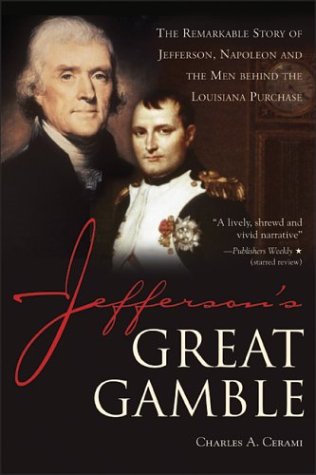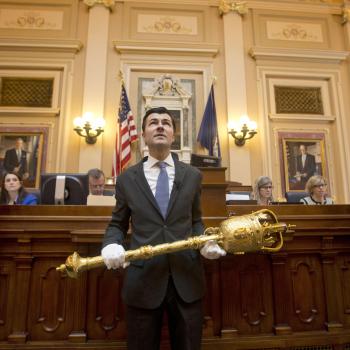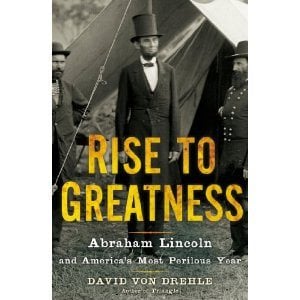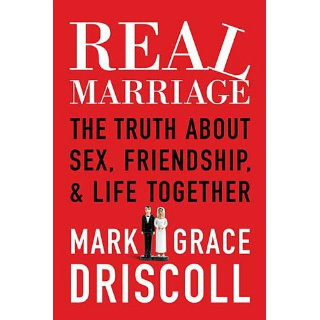 Being a history nerd, I’ve always loved reading about our nation’s past. While I’ve read numerous books on our Founding Fathers and our critical wars, I’ve never read a book exclusively devoted to the Louisiana Purchase. Today, we take this event as an afterthought. We assume that our nation was always going to stretch across a continent and be the most powerful nation on earth.
Being a history nerd, I’ve always loved reading about our nation’s past. While I’ve read numerous books on our Founding Fathers and our critical wars, I’ve never read a book exclusively devoted to the Louisiana Purchase. Today, we take this event as an afterthought. We assume that our nation was always going to stretch across a continent and be the most powerful nation on earth.
This book delves into our formative years as a nation, and talks about one critical event in particular that helped shape the destiny of our nation: the Louisiana Purchase. John Quincy Adams (the 6th president of the United States) called the Louisiana Purchase “next in historical importance to the Declaration of Independence and the adoption of the Constitution.” The land was 875,000 square miles, incorporating all or parts of the modern states of Louisiana, Arkansas, Missouri, New Mexico, Texas, Oklahoma, Iowa, Nebraska, Kansas, North Dakota, South Dakota, Minnesota, Montana, Colorado, and Wyoming. The purchase was made from the country of France in 1803 for the paltry sum of $15 million dollars, or $0.04 an acre. How this historic moment came to be, which effectively doubled the size of the United States overnight and propelled it on a path of greatness is the subject of the book.
One of the interesting insights from the book was how little America truly controlled its own destiny in terms of the Louisiana Purchase. France controlled New Orleans, gateway to the Mississippi River and all mid-American trade. Napoleon, then ruler of France, had grand ambitions to construct a mighty French empire in the New World and use that as a launching point to expand his empire to China. However, forces outside of his control caused those ambitions to derail and ultimately force him to sell the property to the United States.
The possibility of the purchase, more than just being an American-French transaction, centered on two other nations, one mighty and one tiny: England and Santo Domingo (modern-day Haiti). France had recently reacquired the Louisiana territory from Spain. Although it technically owned it, it had yet to send an occupying army to claim control and truly exert French sovereignty over the mighty Mississippi River. Santo Domingo, however, had different plans. Santo Domingo was a long-standing French colony and cash cow for the French state. Dependent solely on slave labor, Santo Domingo was the crown jewel in the French colonial empire. In the years prior to the sale, the slaves of Santo Domingo revolted and threw off French rule. France, in its desire to kill two birds with one stone, sent a mighty occupying army to the New World. Its mission was two-fold. First, it would pacify the rebellion in Santo Domingo (modern-day Haiti), then move to occupy New Orleans and exert dominion over the entire Louisiana territory. The United States, still in its infancy, without a Navy and without much of a standing army, was in no place to withstand the coordinated might of the French army and navy. Although the United States wanted New Orleans for itself, it did not have the might to make it happen.
What happened in Haiti changed the course of American history. The occupying army of France met with disaster after disaster in Santo Domingo. Guerilla warfare tactics by the slaves coupled with tropical diseases completely decimated the French army. They were unable to pacify the Haitian revolt, much less move on to New Orleans. All of a sudden, there was no occupying army coming to claim dominion over New Orleans.
The other country responsible for the Louisiana Purchase was France’s arch-enemy, Great Britain. France had been in a series of wars with Great Britain up to this point, and war would soon be breaking out again. While France was unmatched in its army, England was unmatched in its navy. With the French army decimated in the New World, Napoleon saw the cost of maintaining the Louisiana Purchase as too high. With Britain dominating the seas, their ships would forever menace any armies sent to New Orleans and any profitable ships that would come out of New Orleans. The cost wouldn’t be worth it. At the same time, Napoleon was desperately trying to raise money to launch a new offensive against England. The coffers of France were low, and he needed a quick infusion of cash. The sale of the Louisiana territory to the United States gave him the capital he needed to continue his reign of conquest over the European continent. The icing on the cake was that England wanted the Louisiana territory for itself. It was still bitter for losing control of the American colonies two decades prior, and they wanted back in on the New World. By giving the Louisiana territory to England’s enemies, Napoleon stuck it to his own enemies that much more.
With all of those convoluted politics, the United States was able to purchase the entire Midwest of the continent for a song, propelling our nation onto the path of Manifest Destiny that didn’t finish until we controlled the land from sea to shining sea. Perhaps one of the only people to see the full impact of this sale was Napoleon himself, who stated, “Perhaps it will be objected that the Americans may be found too powerful for Europe in two or three centuries. But my foresight does not embrace such remote fears.”
LESSONS LEARNED
1. The ability to effectively double the size of the nation and seize the opportunity of a lifetime rested on three great men: Thomas Jefferson (president), James Madison (secretary of state, future president), James Monroe (envoy to France, future president). They had the foresight and the courage to pull the trigger and put the country on a path of future greatness.
2. Thomas Jefferson (then president), as an ardent advocate of states’ rights over the federal government, feared that this purchase would forever change the presidency and give that position unwarranted powers over individual states. His fears proved to be correct, as presidential powers have done nothing but grow since his momentous decision.
3. There are no superlatives that can be used to describe how the integrity, foresight and courage of our Founding Fathers gave us the platform to be the great nation that we are today. May our current leaders live up to the high standards of those who came before us.











